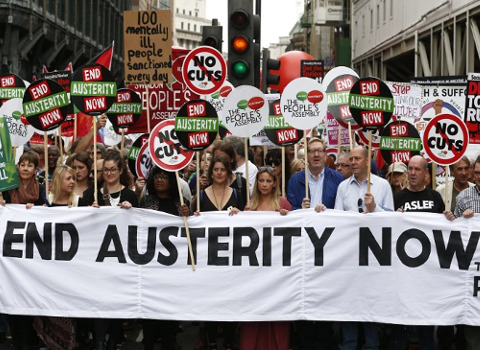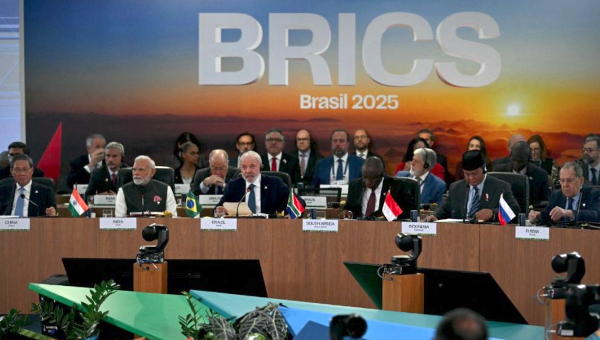At first glance it seems an almost inexplicable paradox: probably the most right wing British government since 1945 inviting, against the advice of the security services, the military and the U.S.
Government, companies controlled by the Chinese Communist Party – and in one case the Chinese military – into the heart of our strategically vital energy infrastructure. But explain the paradox we must, and to do so we need to foreground the other major deal that was struck during President Xi’s visit to Britain a couple of weeks ago: the inter-penetration of British and Chinese financial services.
 There would seem to be no possible connection between Chinese companies building and operating nuclear power stations in 2020s Britain and a 1571 agreement that allows a representative of the City of London Corporation (the ‘Remembrancer’) to attend and monitor debates in the House of Commons. But in Britain we have a semi-feudal state whose governments in recent centuries have consistently privileged financial speculation over all other economic activities. When considering economic and budgetary policy, the Remembrancer conveniently has been at hand to ensure that our elected representatives remember that whatever other interests they might serve, the interests of financial services need to be paramount. The near-invisible hand of the Remembrancer (and the interests he symbolizes) seems to have been at work ensuring that our infrastructure is opened-up to Chinese state-owned companies.
There would seem to be no possible connection between Chinese companies building and operating nuclear power stations in 2020s Britain and a 1571 agreement that allows a representative of the City of London Corporation (the ‘Remembrancer’) to attend and monitor debates in the House of Commons. But in Britain we have a semi-feudal state whose governments in recent centuries have consistently privileged financial speculation over all other economic activities. When considering economic and budgetary policy, the Remembrancer conveniently has been at hand to ensure that our elected representatives remember that whatever other interests they might serve, the interests of financial services need to be paramount. The near-invisible hand of the Remembrancer (and the interests he symbolizes) seems to have been at work ensuring that our infrastructure is opened-up to Chinese state-owned companies.
London Capital:
Against the Common Good
Given the centralization of economic, political and cultural power in London, the way Britain’s elites have been socially and collectively reproduced for centuries (through the same private schools and – latterly – universities, operating within the same social networks) has meant that the state has emerged with a structural, essentially class-rooted, propensity to disproportionately privilege the economic interests of London over those of other parts of the country. As Peter Cain and Tony Hopkins have shown in their book, British Imperialism, the origins of the problem began in the late 17th century and for the next 260 years or so, were intimately associated with the opportunities for financial and commercial speculation that was the British Empire. Gradually, the interests of financial services came to predominate in economic policy formation over those of every other economic sector. While that in itself would have been problematic in any economy, in Britain it has been doubly so because of the City of London’s strong preference for globally oriented speculative activities – casino capitalism – over and above the provision of investment funds in support of the continual need for renewal of the productive basis of the economy.
The consequence of this is that for about 120 years, since the time when British manufacturing industries were first confronted by German and U.S. competitors and desperately in need of investment in innovation, product renewal and advanced production processes, British banks have largely refused to support them. As historians Best and Humphries, writing of the 1930s, note:
“(It) was in its inability to become a dynamic force in the reorganization of basic industry that, in comparative and relative terms, the British financial system failed.”
In spite of occasional attempts to rejuvenate the productive economy and drive forward innovation (notably by Labour governments in the late 1940s and 1960s), no government has intervened (through changes perhaps in corporate governance, taxation policy, or legislation to ensure that banks serve the common good) to reconfigure the interests of City of London institutions in order to bind them more closely to the needs of British economic development and thus to those of the vast majority of the population.
Fast forward to November 2015 and we find that this historical legacy not only continues to impact economic policy, but has been given an extraordinary boost by the current government. Composed largely of very wealthy individuals whose family fortunes are wrapped up in financial and real estate speculation and a Conservative Party that obtains most of its funding from hedge funds and other City institutions, the material interests underpinning policy formation point toward a continual need to ever expand the opportunities for financial speculation, even to the extent of overriding some of the Conservative Party’s most deeply held ideological proclivities.
City Wins, Britain Loses
Assuming that new investment in nuclear power is essential (a very big assumption given that Britain’s energy demands have declined by 18 percent since 2005), the question the government needs to answer is why weren’t less risky (strategically and geo-politically) alternatives to Chinese involvement, such as by Japanese or U.S. companies, seriously considered? Difficulties in obtaining the investment funds – certainly from British banks given their lack of interest in supporting the country’s real economy – might have had something to do with it. But ultimately the decision to involve Chinese companies (initially with the French state-owned power company EDF at Hinkley Point and then on their own at Bradwell and Sizewell), only makes sense if it is seen as the quid pro quo for the financial services deal announced during Xi Jinping’s visit. The real-time linkages between the Shanghai and London stock exchanges will mean that City institutions will have easier access to the Chinese market, while Chinese state owned banks, such as the China Construction Bank, will join the Bank of China in being able to deal on the London stock exchange.
In combination, both these developments will dramatically increase the opportunities for even more financial speculation with its predominant benefits, in the British case, flowing to London’s economic elites and their supporters in Westminster. China, they believe, is by far the biggest financial bonanza out there. For the rest of us, these deals point to a rather different future:
- the Chinese Communist Party and military at the heart of our strategic infrastructure at a time when geo-political relations between China and the U.S. look set to deteriorate (for instance, in the South China Sea);
- the deeper interlinking of the British and Chinese financial systems at a time when the latter is structurally weak, poorly regulated, even more corrupt than the City of London and subject to very high levels of non-performing loans (toxic debt), estimated by Ernst & Young at $911-billion in 2007, and certainly far higher today (so, roll on the next – China inspired – British economic collapse?);
- further government encouragement for the City to ignore the continued wasting of the country’s real economy and its desperate need for investment in its productive base and regional economies.
With all political-economic decisions, we have to strip away the mystifications and ask: ‘Who wins and Who loses?’. With the China deal, it seems that whomever loses, the Remembrancer looks set to be the clear winner. •
This article was originally published in edited form in The Conversation (on November 5, 2015) under the title, “Britain’s nuclear deal with China is a boon for bankers – and no one else.”





